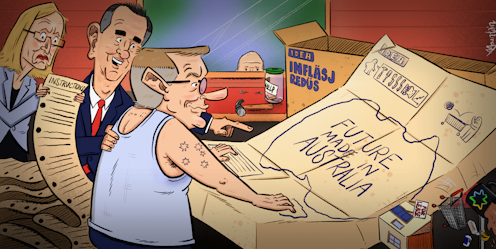Top economists give budget modest rating and doubt inflation will fall as planned
- Written by Peter Martin, Visiting Fellow, Crawford School of Public Policy, Australian National University

Asked to grade Treasurer Jim Chalmers’ third budget on his own criteria of delivering on “inflation in the near term and then growth in the medium term[1]”, most of the 49 leading economists surveyed by the Economic Society of Australia and The Conversation have failed to give it top marks.
On a grading scale of A to F, 17 of the 49 economists – about one-third – give the budget an A or a B. Two have declined to offer a grade.
The result is a sharp comedown from Chalmers’ second budget in 2023. Two-thirds[2] of the economists surveyed conferred an A or a B on that budget.
The economists chosen to take part in the post-budget Economic Society surveys are recognised by their peers as leaders in fields including macroeconomics, economic modelling, housing and budget policy.
Among them are a former head of the Department of Finance, a former Reserve Bank board member and former Treasury, International Monetary Fund and Organisation for Economic Co-operation and Development officials.
Thirteen of those surveyed – more than a quarter – give the budget a low mark of D or an E. None have given it the lowest possible mark of F.
















